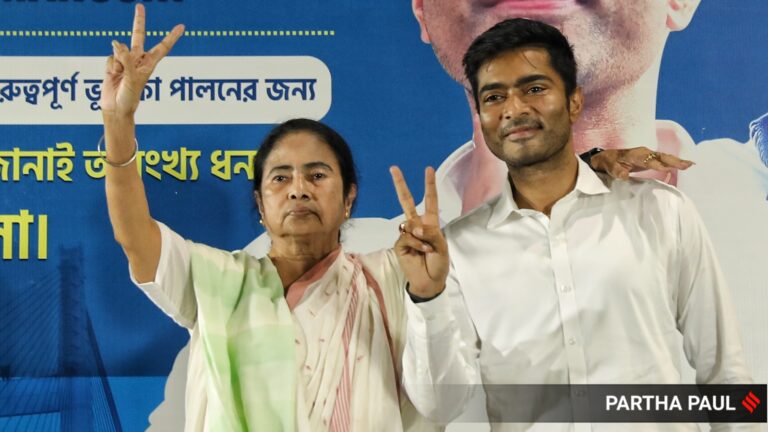“People underestimate me,” says Mamata Banerjee, Trinamool Congress leader and Bengal chief minister. She defied all pollsters’ predictions, winning 29 of India’s 42 Lok Sabha seats in the toughest race to survive in any election ever. But what political pundits apparently misunderstand or overlook is Didi’s chemistry with the people, and her ability to fight back when she’s backed into a corner. That’s when she’s at her best.
In fact, Banerjee’s organic connection with the people was forged not as an administrator but as a grassroots anti-establishment activist for justice. In fact, it was precisely because of her fiery stance and firebrand style that she was able to carve out a political platform. Her disruptive politics convinced people of her sincerity of purpose, which she never compromised or compromised. She broke away from the Congress Party, toppled three generations of Left rule, and was in and out of the BJP-led National Democratic Alliance (NDA) government, justifying her image as an activist rather than a strongman. Mamata’s enduring appeal is in uprooting Left giants while operating within a hostile system (which remains important to two generations of voters). She stood up to them and built her political reputation on charisma, cause-driven activism and grassroots connections.
In that sense, she is a disruptor and in recent years has emerged as the main face of the opposition, the only one capable of taking on the BJP and countering their attacks step by step. This time, she played not soft Hindutva but a stronger card – her Bengali identity.
Her slogan, “Bangla Birodi Jonogoner Ghorjon/Bangla Birodida Bishorjon (Rage against anti-Bengali forces and sink them)” penetrated deep into the Bengali psyche as it equated the BJP with the “outsiders” who could culturally erode the “insiders”. And to Mamata’s credit, she has been able to incorporate generations of “outsider settlers” – non-Bengalis – into her “insiders”. That’s why her refusal to grant central funding to Bengal for the MNREGA scheme turned into a visible movement that got Congress members protesting in Delhi, hitting rural voters, many of whom are migrants.
Like many politicians in power, Mamata has built a beneficiary constituency. She has always had an emotional connect with women. But with education subsidies for girls’ education through Kanyashree and direct cash transfers through Lakshmi Bhandar, she has given them the tools of empowerment. More importantly, she has been able to convince each beneficiary that these schemes will be stopped if they fail to send enough members to Parliament. In fact, her aggressive door-to-door campaigns have ensured that every beneficiary is converted into a loyal voter. Over the past few years, she has gone ahead of the BJP in expediting the process of issuing caste certificates to Scheduled Castes, Scheduled Tribes and Other Backward Classes.

Many may think that Mamata’s votes come from minorities, the marginalised and women, but with her nephew Abhishek Banerjee, who has campaigned hard and struck a chord with the youth, she represents both generational change and continuity.
Many will wonder how Mamata managed to get votes despite the scams, administrative mismanagement and criticism of her heavy-handed politics. Her supporters see this in comparison to other, bigger scams. In a way, they “otherize” these as an aberration or evil that plagues other parties as well. Didi’s own image is one of someone used by her cronies and she is rarely seen as the perpetrator. This sense of distance, cultivated or not, still gives her an edge. She makes up for the rest by positioning herself as the ally of the common man, making chai in people’s homes and rushing to any disaster relief. As for the religion card, she has neutralised it by making Durga Puja the most secular event in public Bengal.

As for the accusation of “election management”, the BJP itself cannot escape the accusation that it is sending men from Bihar and Jharkhand to Bengal while promising reforms. The sadder story of Bengal is that the parties have institutionalised power, so that now the switching between parties in Bengal politics is not ideological but only a matter of coercive force. Unfortunately, that sets the terms of the debate and voters feel that they should join the strongest side, whether they are decided or not. But as a lone woman leader who brute-forces her way through male rivals and takes on the odds, Mamata can always be trusted as the elder woman who knows what is best for the state.
Link
© Indian Express Ltd.
First uploaded: 06 Jun 2024 12:33 IST


